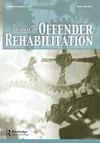优先住房作为前罪犯回家的钥匙:用利普斯基的理论对街头官僚评估荷兰住房紧急证书的潜力
IF 1.1
Q3 SOCIAL WORK
引用次数: 0
摘要
摘要获得住房被认为是前科犯重返社会过程中一个重要但问题重重的方面。为了克服现有的困难,建议荷兰前科犯申请所谓的“住房紧急证书”,使有紧急住房需求的人优先于其他寻求经济适用(社会)住房的人。本文采用综合多方法,通过研究荷兰45个市镇的优先住房条例(实施情况),确定优先住房是否确实有潜力成为前科犯住房问题的解决方案的一部分。研究表明,大多数法规并没有明确包括或排除前囚犯获得优先地位。因此,前科犯是否有资格获得优先地位往往取决于决策者对法规的解释。对这些决策者进行的采访,并根据迈克尔·利普斯基关于街头官僚的理论进行分析,表明大多数人在评估申请时享有很大的自由裁量权。因此,前科犯成功获得优先地位的机会主要取决于个别街道官员的规则应用风格。结论是,尽管荷兰的优先住房制度允许为个人住房问题提供量身定制的解决方案,但它对遣返前科犯几乎没有法律确定性。本文章由计算机程序翻译,如有差异,请以英文原文为准。
Priority housing as ex-offenders’ key to a home: assessing the potential of Dutch certificates of housing urgency using Lipsky’s theory on street-level bureaucrats
Abstract Having access to housing is considered a vital but also highly problematic aspect of ex-offenders’ reintegration process. To overcome the existing difficulties, Dutch ex-offenders are advised to apply for a so-called “certificate of housing urgency,” granting persons with urgent housing needs priority over others seeking affordable (social) housing. Using a holistic multimethod approach, this paper determines whether priority housing does indeed have the potential of becoming (part of) the solution to ex-offenders’ housing problems by examining the (implementation of) priority housing regulations in 45 Dutch municipalities. The study reveals that most regulations do not explicitly include or exclude ex-prisoners from receiving priority status. Whether an ex-offender qualifies for a priority status consequently often depends on decision-makers’ interpretation of the regulations. Interviews conducted with these decision-makers and analyzed in light of Michael Lipsky’s theory on street-level bureaucrats reveal that most enjoy a significant margin of discretion when assessing applications. As a result, ex-offenders’ chances of successfully obtaining a priority status primarily depend on the individual street-level bureaucrats’ style of rule application. It is concluded that whereas the Dutch priority housing system allows for tailored solutions to individual housing problems it offers little legal certainty to returning ex-offenders.
求助全文
通过发布文献求助,成功后即可免费获取论文全文。
去求助
来源期刊

Journal of Offender Rehabilitation
SOCIAL WORK-
CiteScore
1.60
自引率
0.00%
发文量
24
期刊介绍:
The Journal of Offender Rehabilitation is a multidisciplinary journal of innovation in research, services and programs in criminal justice and corrections. The journal is an essential professional resource for practitioners, educators and researchers who work with individuals involved in the criminal justice system and study the dynamics of rehabilitation and individual and system change. Original research using qualitative or quantitative methodology, theoretical discussions, evaluations of program outcomes, and state of the science reviews will be considered.
 求助内容:
求助内容: 应助结果提醒方式:
应助结果提醒方式:


